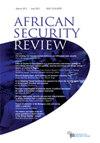The political economy of soft power: South Africa’s neo-liberal order and multinational corporations’ attraction in Africa
IF 1.1
Q3 INTERNATIONAL RELATIONS
引用次数: 1
Abstract
ABSTRACT In recent times, the concept of soft power has emerged as one of the most important terms in international relations. It has been applied to various aspects of statecraft from democracy promotion to peace-making, cultural diplomacy, economic diplomacy, counter-terrorism and disaster management, to name but a few. However, there is a dearth of literature on the political economy of soft power. Given that economic interests substantially drive states’ foreign policies, it is surprising that this aspect of states’ power of attraction has been neglected. It is against this backdrop that this article examines the political economy of soft power focusing on South Africa. In doing so, it engages South Africa’s neo-liberal order and the influx of its multinational companies in Africa and submits that despite the criticism it encounters in this regard, Pretoria has exercised soft power within the purview of political economy.软实力的政治经济学:南非的新自由主义秩序和跨国公司在非洲的吸引力
近年来,软实力的概念已成为国际关系中最重要的术语之一。它已被应用于治国方略的各个方面,从促进民主到缔造和平、文化外交、经济外交、反恐和灾害管理等等。然而,关于软实力的政治经济学的文献却很少。考虑到经济利益在很大程度上驱动着国家的外交政策,令人惊讶的是,国家吸引力的这一方面被忽视了。正是在这样的背景下,本文以南非为中心考察软实力的政治经济学。在这样做时,它涉及南非的新自由主义秩序及其跨国公司在非洲的涌入,并提出,尽管在这方面受到批评,比勒陀利亚在政治经济范围内行使了软实力。
本文章由计算机程序翻译,如有差异,请以英文原文为准。
求助全文
约1分钟内获得全文
求助全文

 求助内容:
求助内容: 应助结果提醒方式:
应助结果提醒方式:


